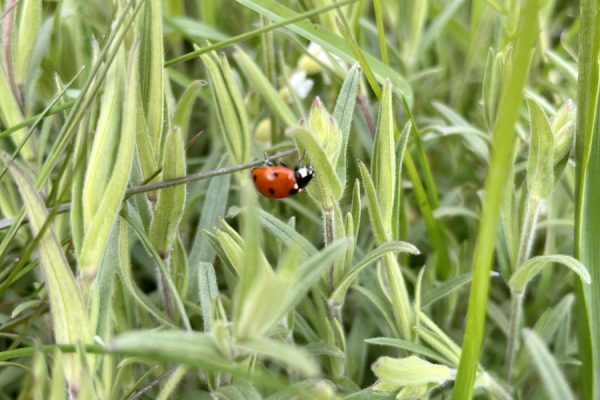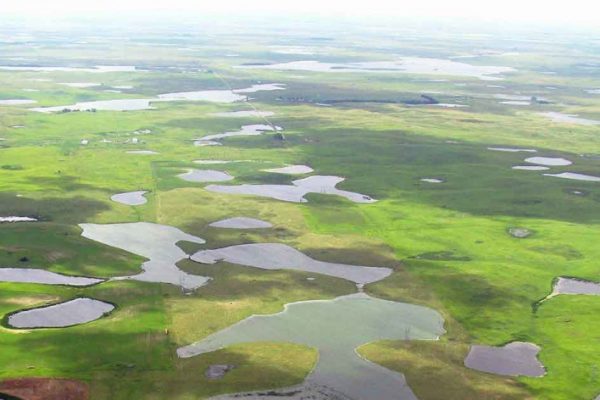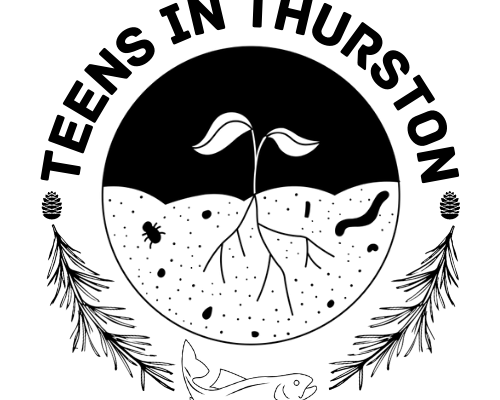I transferred to The Evergreen State College in 2019, after several years working as a paralegal, with a strong desire to study ecology within Evergreen’s unique interdisciplinary structure and alternative learning model. Three years later, I graduated with a dual Bachelor of Science and Arts degree in Ecology and Conservation. I discovered that academic research and working in community aren’t mutually exclusive paths, nor are quantitative and qualitative approaches to engaging with environmental issues.
As all aspiring ecologists do, I spent hours outdoors both in academic courses and external internships making careful observations, collecting data, removing invasive species, and monitoring threatened and endangered species. I learned to read landscapes as watersheds and to appreciate aquatic invertebrates and soil fauna as much as the charismatic mammals most beloved in conservation efforts. The natural world became more strange, beautiful, strong, and fragile to me with each subsequent experience. The ways human policy, economy, and history were written across each landscape fascinated me just as much as each new non-human species I learned to know better.
I planted native flora for endangered butterfly habitat enhancement, working alongside active-duty military servicemembers preparing to transition to civilian life, on remnant Salish Sea prairies that were saved from development by Army annexation and kept cleared by fires ignited during artillery impact tests. The significance of how the natural world connects us with others regardless of background, and with ourselves during radical life transformations, struck me deeply as I bonded with my fellow interns. I spent a summer assisting a plant pathologist in eradicating an invasive snail species, which decimated the Australian wheat industry and was now attempting to naturalize in an empty lot at a deep-water port in our own region. I became even more inquisitive about the politics of interagency collaboration in natural resource management.
Observation and asking questions are only the first step in the scientific method. When faced with the sudden adaptation to remote learning, I explored more of what Evergreen had to offer. I discovered a strong interest in and aptitude for ecological statistics and broadened my worldview through sociologically and politically focused courses.
I used the framework of “taste of place” to study regenerative agriculture and apply systems thinking to the fundamentals of human life―food, water, land, autonomy, community. I took on independent inquiries into the political ecology of food systems and established a co-curricular community garden plot on campus with other students. At every turn I realized that few things are more important than collaborative problem-solving, environmental and otherwise. Faculty wrote of my “exceptional capacity for interdisciplinary, politically-informed research in food and ag studies.”
My scientific capstone experience was a small group research project that culminated in the writing and conference-style presentation of a scientific paper titled “Measuring the Effects of Salmon Presence on Freshwater Macroinvertebrate Communities in Streams in Thurston County, WA”. Faculty wrote “[all sections] were exemplary, exceeded our expectations for the work, and as a whole, the scientific article is of high quality and represents a strong final draft… We commend them on their excellent work.” I spent a quarter as a statistics peer tutor, and continued research in macroinvertebrate taxonomy and R programming in the LeRoy Freshwater Ecology Lab.
As a second capstone experience, I was a Community Outreach Intern for Thurston Conservation District. While immersed in local agricultural and conservation communities, organizations, and initiatives, I researched broader contexts in which our decisions and options exist. My inquiry into how public policy and political economy inform ecological change, food systems, common-use resources, and land use began to answer questions generated during my earlier field experiences. I developed outreach material creation, event coordination, and science communication skills, while building on my WordPress design experience. My internship supervisor wrote “I look forward to Ali having the space… to ground her passions in work and community. I see her doing this naturally and she’ll be very successful.”
Simultaneously, I interned at the City of Olympia Climate Program with the support of Evergreen’s Center for Climate Action and Sustainability. My paralegal, data analysis, and environmental studies experiences prepared me to conduct an existing building stock inventory, which will inform future cost analysis and decarbonization policy.
At Evergreen, I had the freedom to take academic risks and explore subjects both broadly and deeply with support and encouragement from faculty and peers, while taking responsibility for my own education. I’ve gained the opportunity, passion, and knowledge base to pursue graduate studies and a career at the intersection of environmental science and policy.





